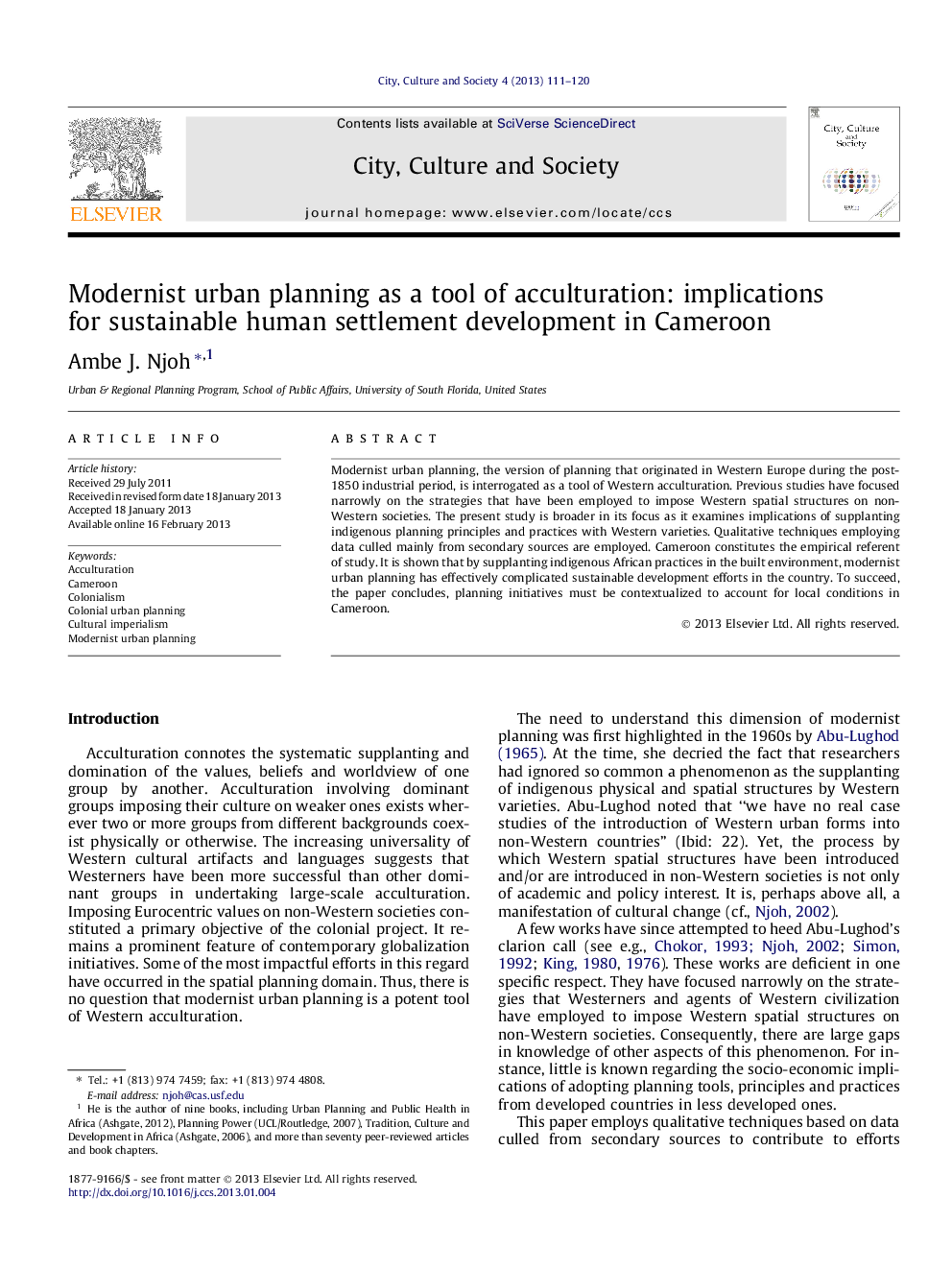| Article ID | Journal | Published Year | Pages | File Type |
|---|---|---|---|---|
| 5048375 | City, Culture and Society | 2013 | 10 Pages |
Modernist urban planning, the version of planning that originated in Western Europe during the post-1850 industrial period, is interrogated as a tool of Western acculturation. Previous studies have focused narrowly on the strategies that have been employed to impose Western spatial structures on non-Western societies. The present study is broader in its focus as it examines implications of supplanting indigenous planning principles and practices with Western varieties. Qualitative techniques employing data culled mainly from secondary sources are employed. Cameroon constitutes the empirical referent of study. It is shown that by supplanting indigenous African practices in the built environment, modernist urban planning has effectively complicated sustainable development efforts in the country. To succeed, the paper concludes, planning initiatives must be contextualized to account for local conditions in Cameroon.
⺠Modernist urban planning is interrogated as a tool of Western acculturation. ⺠The focus is on the implications of supplanting indigenous planning principles and practices with Western varieties. ⺠Cameroon is employed as the empirical referent. ⺠It is shown that modernist urban planning has socio-economic, cultural, and political implications. ⺠These implications transcend the planning arena, and affect other domains of Cameroonian society.
